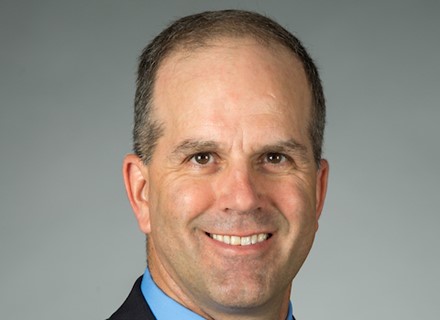Today’s column is a sincere letter of gratitude to all of you, the faculty and staff of Mendoza College of Business.
Just six months ago (which now seems like an eon), we were going about our business as usual— teaching classes, conducting research and hosting events, and rolling out a new vision for the future of Mendoza that included our new tagline to “Grow the Good in Business” with a new marketing strategy offering key promises to our students, plans for a new building, new classrooms, expanded programs, a new organizational structure and more.
And then the coronavirus hit, and the way we went about our business changed in drastic ways as the campus emptied and we pivoted to online teaching. At the same time, we should consider all that didn’t change. We continued to teach and do research. We continued our planning for elevating our programs, for cooperating more across programs and groups, and for a more integrated vision of business. We continued to improve our building, although in a scaled back way. And perhaps most importantly, we continued to support each other and our students as a community.
During the summer months, you’ve been able to hear about many of these developments through the Mendoza Exchange Guest Columns provided by associate deans
Ken Kelley,
Walt Clements and
Kristen Collett-Schmitt, as well as
Kara Palmer and
Doug Franson. (
Jim Leady and
Mike Mannor are up next!) I greatly appreciate their contributions, which have provided insights and updates in their particular areas of responsibility.
I hope these columns also have helped you to understand the level of activity that has continued to go on at the College, even while the halls and offices were empty and most of you worked from home. At this moment in time, we are able to step into the new academic year with hope, purpose and, yes, some nervousness, because of the extraordinary efforts and commitment that you all have devoted to your work, to supporting each other and to the larger mission of Mendoza.
To give you an idea of how the fall semester is shaping up, I invite you to review this list of “
Mendoza Fast Facts for Fall 2020” for an overview of faculty/staff numbers, program enrollment, courses and other information. We’re a busy place! A few additional items to note:
- We recruited 18 new faculty members, including three in endowed chair positions: James Otteson, John T. Ryan Jr. Professor of Business Ethics; Ahmed Abbasi, Joe and Jane Giovanini Professor of IT, Analytics, and Operations; and Jason Colquitt, Franklin D. Schurz Professor of Management.
- We received a generous $15 million gift from Ken and Susan Meyer to name and endow the Meyer Business on the Frontlines Program, which will allow us to significantly expand this innovative MBA program initiative under the leadership of Viva Bartkus.
- We recruited a new Two-Year MBA class that is 32% women – the highest percentage in 10+ years.
All of these items are noteworthy and things that I’m very grateful for. There’s something else, though, that I’m most grateful for can’t be expressed in numbers: Your inspiring attitude as you put in the hours and hours of work to continue serving our students and uphold the standards of Notre Dame.
We do not know what the future holds. We don’t even know what the football season holds! But we know that we will continue to care for each other with grace and patience, and to pray for the many who are suffering across the globe because of COVID. You can find two prayers for the end of the COVID-19 pandemic written by Pope Francis
here to be prayed after reciting the rosary. We’ve included part of one of the prayers below.
Thank you and GO IRISH!
In Notre Dame,
Martijn
Pope Frances: Prayer to End the COVID-19 Pandemic
"We fly to your protection, O Holy Mother of God."
“In the present tragic situation, when the whole world is prey to suffering and anxiety, we fly to you, Mother of God and our mother, and seek refuge under your protection.
Virgin Mary, turn your merciful eyes toward us amid this coronavirus pandemic. Comfort those who are distraught and mourn their loved ones who have died, and at times are buried in a way that grieves them deeply. Be close to those who are concerned for their loved ones who are sick and who, in order to prevent the spread of the disease, cannot be close to them. Fill with hope those who are troubled by the uncertainty of the future and the consequences for the economy and employment.
Beloved Mother, help us realize that we are all members of one great family and to recognize the bond that unites us, so that, in a spirit of fraternity and solidarity, we can help to alleviate countless situations of poverty and need. Make us strong in faith, persevering in service, constant in prayer.
Mary, Consolation of the afflicted, embrace all your children in distress and pray that God will stretch out his all-powerful hand and free us from this terrible pandemic, so that life can serenely resume its normal course.
To you, who shine on our journey as a sign of salvation and hope, do we entrust ourselves, O Clement, O Loving, O Sweet Virgin Mary. Amen.”






